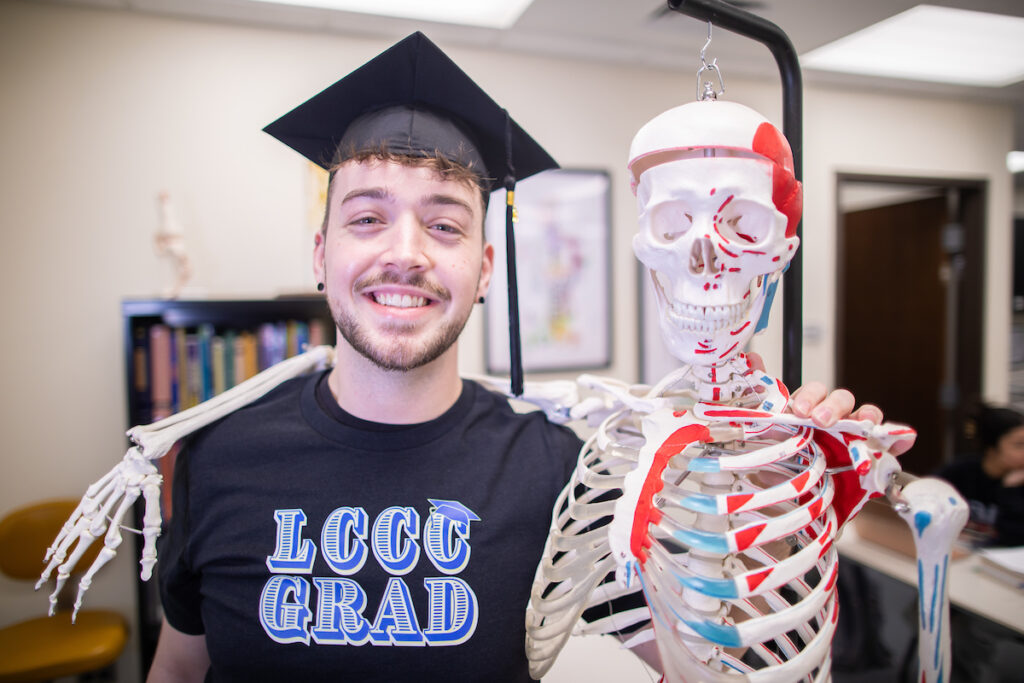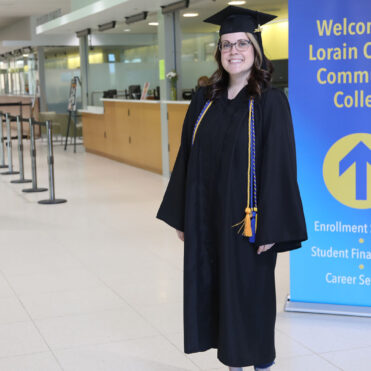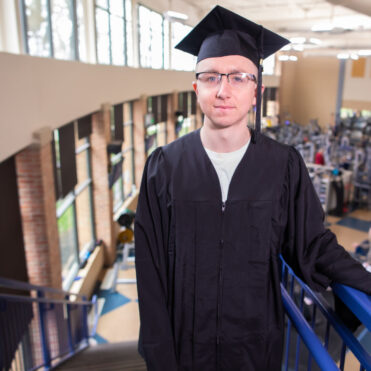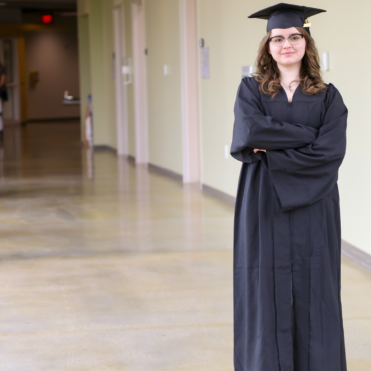Aidan Moran:
Physical
Therapy
Assistant
Aidan Moran has been working at the Cleveland Clinic Rehabilitation Center in Avon for three years now. As a therapy aide, he works closely with physical, occupational, and speech therapists, and he’s learned a lot.
“I’ve been able to develop my bedside manner, learn how to work with complex medical cases, and see what the therapy world is like,” Moran, of Avon, said.
He can’t yet treat patients in this role, but that’s about to change. After Moran graduates from Lorain County Community College with his Associate of Applied Science in Physical Therapy Assistant in May, and passes the National Physical Therapy Exam in July, he will be a licensed physical therapy assistant. Under the direction and supervision of a physical therapist, Moran will treat patients through exercise, massage, gait and balance training, and other therapeutic interventions.
He can’t wait to apply what he’s learned at LCCC to help others.
“I wanted to do something that would impact people every day,” Moran said.
Moran, 29, said enrolling at LCCC was an easy choice because of its low tuition and high quality of education. But being back in school after nearly a decade since graduating from high school wasn’t as easy.
“As an adult learner, coming back to education was tough while working full time,” he said. “But getting my degree and seeing where my degree will take me has made it all the more worthwhile.”
Along the way, Moran met fellow students who were in the same position, balancing school, work and home life, which allowed for bonding and encouragement. He also got to know numerous faculty and staff members who helped him push through in the unique ways that worked for him.
“They encouraged my learning style, helped me adapt as an adult learner, and allowed me to feel more confident,” Moran said.
One of the more unique experiences that aligned well with Moran’s hands-on learning style came during his final semester. The entire 2025 physical therapy assistant class worked in LCCC’s Fab Lab to create an enlarged, 3D-printed vestibular apparatus—the structure in the inner ear that senses bodily movement.
Carrie Firmanty, Ph.D., program director, wanted to create the anatomically correct replica to help her students better understand how to treat patients with vertigo through various head movements.
“It’s a tough concept for students to learn,” said Firmanty. “They can’t see the apparatus, so they just need to have a mind’s eye view of how it works.”
Moran said the experience, which was a prime example of LCCC instructors thinking outside the box when it comes to learning, provided advanced knowledge of how the vestibular system works.
“Up until that day a lot of our studies were through textbooks and visuals,” Moran said. “The experience really pieced it all together.”
For Moran, who was initially hesitant about going back to school for his associate degree, his LCCC experience has been empowering. And he’s not done. His immediate future includes not only working as a physical therapy assistant, for which he already has two potential job offers, but also pursuing his Bachelor of Science.
For both future goals, Moran feels well prepared.
“LCCC helped me meet so many people from all walks of life, and helped me make connections,” Moran said. “It was here for me when I was ready to reach for something greater.”




